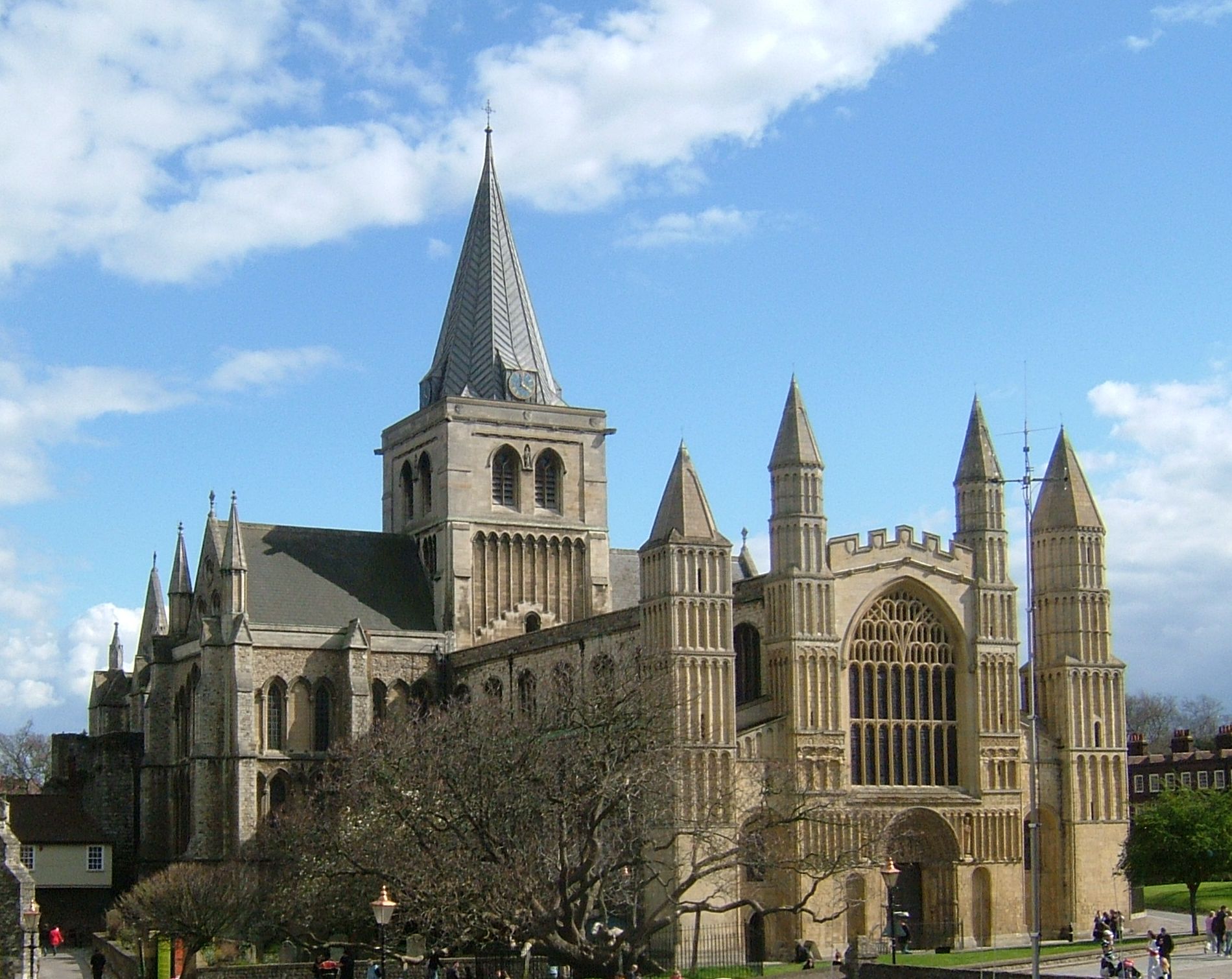| Castles and abbeys. 11:52 - Jun 27 with 5329 views | qpr_1968 |
something about these big old buildings fascinate me, probably the history and what went on in those walls, especially medieval times.
my favourite castle over here is Berkeley castle, great bit of history and lovely country side.
there are plenty more bigger and better looking......bit like women.
there is one in france i'd like to visit, had good reviews....carcasson, if that's the right spelling.
been to good few in England, Scotland and wales. |  |
| |  |
| Castles and abbeys. on 22:02 - Jun 28 with 1431 views | Boston |
| Castles and abbeys. on 21:49 - Jun 28 by BrianMcCarthy |
Jesus, I got the worst tour ever!
To be fair my tour guide was the manageress of the local hostel/gite, a lovely Japanese woman. And just happened to have the keys to the Cathedral. It was nice of her. |
Did she surrender? |  |
|  |
| Castles and abbeys. on 10:04 - Jun 29 with 1352 views | TacticalR |
Engels on the role of Calvinism in the English revolution:
'The long fight of the bourgeoisie against feudalism culminated in three great, decisive battles.
The first was what is called the Protestant Reformation in Germany. The war cry raised against the Church, by Luther, was responded to by two insurrections of a political nature; first, that of the lower nobility under Franz von Sickingen (1523), then the great Peasants' War, 1525. Both were defeated, chiefly in consequence of the indecision of the parties most interested, the burghers of the towns — an indecision into the causes of which we cannot here enter. From that moment, the struggle degenerated into a fight between the local princes and the central power, and ended by blotting out Germany, for 200 years, from the politically active nations of Europe. The Lutheran Reformation produced a new creed indeed, a religion adapted to absolute monarchy. No sooner were the peasant of North-east Germany converted to Lutheranism than they were from freemen reduced to serfs.
But where Luther failed, Calvin won the day. Calvin's creed was one fit for the boldest of the bourgeoisie of his time. His predestination doctrine was the religious expression of the fact that in the commercial world of competition success or failure does not depend upon a man's activity or cleverness, but upon circumstances uncontrollable by him. It is not of him that willeth or of him that runneth, but of the mercy of unknown superior economic powers; and this was especially true at a period of economic revolution, when all old commercial routes and centres were replaced by new ones, when India and America were opened to the world, and when even the most sacred economic articles of faith — the value of gold and silver — began to totter and to break down. Calvin's church constitution of God was republicanized, could the kingdoms of this world remains subject to monarchs, bishops, and lords? While German Lutheranism became a willing tool in the hands of princes, Calvinism founded a republic in Holland, and active republican parties in England, and, above all, Scotland.
In Calvinism, the second great bourgeois upheaval found its doctrine ready cut and dried. This upheaval took place in England. The middle-class of the towns brought it on, and the yeomanry of the country districts fought it out. Curiously enough, in all the three great bourgeois risings, the peasantry furnishes the army that has to do the fighting; and the peasantry is just the class that, the victory once gained, is most surely ruined by the economic consequences of that victory. A hundred years after Cromwell, the yeomanry of England had almost disappeared. Anyhow, had it not been for that yeomanry and for the plebian element in the towns, the bourgeoisie alone would never have fought the matter out to the bitter end, and would never have brought Charles I to the scaffold. In order to secure even those conquests of the bourgeoisie that were ripe for gathering at the time, the revolution had to be carried considerably further — exactly as in 1793 in France.'
Introduction to the English edition of Socialism: Utopian and Scientific (1892)
https://www.marxists.org/archive/marx/works/1880/soc-utop/int-hist.htm |  |
|  |
| Castles and abbeys. on 10:31 - Jun 29 with 1335 views | MrSheen |
| Castles and abbeys. on 10:04 - Jun 29 by TacticalR |
Engels on the role of Calvinism in the English revolution:
'The long fight of the bourgeoisie against feudalism culminated in three great, decisive battles.
The first was what is called the Protestant Reformation in Germany. The war cry raised against the Church, by Luther, was responded to by two insurrections of a political nature; first, that of the lower nobility under Franz von Sickingen (1523), then the great Peasants' War, 1525. Both were defeated, chiefly in consequence of the indecision of the parties most interested, the burghers of the towns — an indecision into the causes of which we cannot here enter. From that moment, the struggle degenerated into a fight between the local princes and the central power, and ended by blotting out Germany, for 200 years, from the politically active nations of Europe. The Lutheran Reformation produced a new creed indeed, a religion adapted to absolute monarchy. No sooner were the peasant of North-east Germany converted to Lutheranism than they were from freemen reduced to serfs.
But where Luther failed, Calvin won the day. Calvin's creed was one fit for the boldest of the bourgeoisie of his time. His predestination doctrine was the religious expression of the fact that in the commercial world of competition success or failure does not depend upon a man's activity or cleverness, but upon circumstances uncontrollable by him. It is not of him that willeth or of him that runneth, but of the mercy of unknown superior economic powers; and this was especially true at a period of economic revolution, when all old commercial routes and centres were replaced by new ones, when India and America were opened to the world, and when even the most sacred economic articles of faith — the value of gold and silver — began to totter and to break down. Calvin's church constitution of God was republicanized, could the kingdoms of this world remains subject to monarchs, bishops, and lords? While German Lutheranism became a willing tool in the hands of princes, Calvinism founded a republic in Holland, and active republican parties in England, and, above all, Scotland.
In Calvinism, the second great bourgeois upheaval found its doctrine ready cut and dried. This upheaval took place in England. The middle-class of the towns brought it on, and the yeomanry of the country districts fought it out. Curiously enough, in all the three great bourgeois risings, the peasantry furnishes the army that has to do the fighting; and the peasantry is just the class that, the victory once gained, is most surely ruined by the economic consequences of that victory. A hundred years after Cromwell, the yeomanry of England had almost disappeared. Anyhow, had it not been for that yeomanry and for the plebian element in the towns, the bourgeoisie alone would never have fought the matter out to the bitter end, and would never have brought Charles I to the scaffold. In order to secure even those conquests of the bourgeoisie that were ripe for gathering at the time, the revolution had to be carried considerably further — exactly as in 1793 in France.'
Introduction to the English edition of Socialism: Utopian and Scientific (1892)
https://www.marxists.org/archive/marx/works/1880/soc-utop/int-hist.htm |
Yes, but...the peasantry, largely illiterate, were among the least amenable to the message of Calvinism in both England and France, and most committed to visual representations in their religion and to the Christian and pre-Christian traditions the Reformed Calvinists were so determined to eliminate. The reason that the Commonwealth was so reluctant to allow universal (male) suffrage was that their revolution would have been immediately overthrown. |  | |  |
| Castles and abbeys. on 12:33 - Jun 30 with 1279 views | TacticalR |
| Castles and abbeys. on 10:31 - Jun 29 by MrSheen |
Yes, but...the peasantry, largely illiterate, were among the least amenable to the message of Calvinism in both England and France, and most committed to visual representations in their religion and to the Christian and pre-Christian traditions the Reformed Calvinists were so determined to eliminate. The reason that the Commonwealth was so reluctant to allow universal (male) suffrage was that their revolution would have been immediately overthrown. |
I think Engels was trying to discern the earthly roots of Calvinism.
Maybe there is a bit of confusion about what Engels meant by 'peasants'? From his remarks about the yoemanry creating the conditions for its own destruction I presume he was talking about small landowners who had enough economic independence to be able to furnish fighting men for an army, but who would eventually be eliminated by the economic forces they were unleashing.
Was there significant support for universal suffrage in the 17th century among the mainstream of the revolutionaries? I only ask that because I recently read Helena Rosenblatt's 'The Lost History of Liberalism - From Ancient Rome to the Twenty-First Century' and even in the 19th century very few liberals supported universal suffrage.
Talking of anachronism, from memory Tony Benn used to go on about the Civil War as some kind of socialist struggle, losing sight of the fact that the conditions for socialism did not exist in the 17th century. |  |
|  |
| Castles and abbeys. on 12:43 - Jun 30 with 1269 views | MrSheen |
| Castles and abbeys. on 12:33 - Jun 30 by TacticalR |
I think Engels was trying to discern the earthly roots of Calvinism.
Maybe there is a bit of confusion about what Engels meant by 'peasants'? From his remarks about the yoemanry creating the conditions for its own destruction I presume he was talking about small landowners who had enough economic independence to be able to furnish fighting men for an army, but who would eventually be eliminated by the economic forces they were unleashing.
Was there significant support for universal suffrage in the 17th century among the mainstream of the revolutionaries? I only ask that because I recently read Helena Rosenblatt's 'The Lost History of Liberalism - From Ancient Rome to the Twenty-First Century' and even in the 19th century very few liberals supported universal suffrage.
Talking of anachronism, from memory Tony Benn used to go on about the Civil War as some kind of socialist struggle, losing sight of the fact that the conditions for socialism did not exist in the 17th century. |
There were quite a few among "The Saints", i.e. the radical wing of the New Model Army, who were pro universal suffrage. Though the commanders led the opposition to them, not all of the gentry were opposed. You might want to look into the Putney Debates and Thomas Rainsborough, who I believe was a hero of Tony Benn and was written about by John Rees (SWP?). There were periodic army mutinies which mentioned the demands of the "Levellers", though my understanding is that other prominent figures like Richard Overton and Gerrard Winstanley weren't soldiers. |  | |  |
| Castles and abbeys. on 12:57 - Jun 30 with 1258 views | R_from_afar |
St Bertrand de Comminges is wonderful, the village itself too. Unless you are a local, you have to park outside the village and walk in and that helps preserve the timeless feel.
Maiden Castle, the hill fort in Dorset, is worth a visit, it's massive and when you go there, the huge defensive ditches and deliberately confusing walkways give you a sense of how difficult it would have been to attack. There are also the remains of a Roman temple on the summit.
Dunstanburgh Castle in Northumberland is impressive, it's set right on the coast and is said to be the largest in the country. |  |
| "Things had started becoming increasingly desperate at Loftus Road but QPR have been handed a massive lifeline and the place has absolutely erupted. it's carnage. It's bedlam. It's 1-1." |
|  |
| Castles and abbeys. on 13:03 - Jun 30 with 1238 views | MrSheen |
| Castles and abbeys. on 12:57 - Jun 30 by R_from_afar |
St Bertrand de Comminges is wonderful, the village itself too. Unless you are a local, you have to park outside the village and walk in and that helps preserve the timeless feel.
Maiden Castle, the hill fort in Dorset, is worth a visit, it's massive and when you go there, the huge defensive ditches and deliberately confusing walkways give you a sense of how difficult it would have been to attack. There are also the remains of a Roman temple on the summit.
Dunstanburgh Castle in Northumberland is impressive, it's set right on the coast and is said to be the largest in the country. |
I've never heard of Dunstanburgh! It wasn't in Kingmaker...
 |  | |  |
| Castles and abbeys. on 13:32 - Jun 30 with 1212 views | R_from_afar |
| Castles and abbeys. on 13:03 - Jun 30 by MrSheen |
I've never heard of Dunstanburgh! It wasn't in Kingmaker...
 |

Reopening this Saturday, booking essential, and no, I am not on commission!
https://www.nationaltrust.org.uk/dunstanburgh-castle |  |
| "Things had started becoming increasingly desperate at Loftus Road but QPR have been handed a massive lifeline and the place has absolutely erupted. it's carnage. It's bedlam. It's 1-1." |
|  |
Login to get fewer ads
| Castles and abbeys. on 13:37 - Jun 30 with 1197 views | dannyblue |
And a very nice stroll down the coast from Holy Island and Bamburgh castle too.

Great bit of Britain. |  | |  |
| Castles and abbeys. on 13:41 - Jun 30 with 1179 views | eastside_r |
I can vouch for Dunstanburgh as well, it's magnificent.
There's some other absolute beauties in that part of the world, Alnwick, Warkworth, Bamburgh it's like castle porn in that part of Northumberland.
(Alnwick is the castle in the original Blackadder titles.) |  | |  |
| Castles and abbeys. on 14:31 - Jun 30 with 1147 views | dannyblue |
| Castles and abbeys. on 12:43 - Jun 30 by MrSheen |
There were quite a few among "The Saints", i.e. the radical wing of the New Model Army, who were pro universal suffrage. Though the commanders led the opposition to them, not all of the gentry were opposed. You might want to look into the Putney Debates and Thomas Rainsborough, who I believe was a hero of Tony Benn and was written about by John Rees (SWP?). There were periodic army mutinies which mentioned the demands of the "Levellers", though my understanding is that other prominent figures like Richard Overton and Gerrard Winstanley weren't soldiers. |
Going earlier, I wonder if my esteemed confrères have an opinion on the feudalism debate? Is it a useful construct? Specifically as it applies to the wave of castle building in the 11th century? |  | |  |
| Castles and abbeys. on 17:17 - Jun 30 with 1097 views | dannyblue |
| Castles and abbeys. on 15:07 - Jun 27 by CliveWilsonSaid |
Rochester for me. Impressive Castle and Cathedral right next to each other. Good for pubs and live music too. Quick and easy to get to from London and can usually pick up good cheap advance train tickets in my experience. More characterful and less touristy than Canterbury/Winchester, although the town has gone a little more up market of late and subsequently lost some of it's charm. Still a great day out though.

 |
Since we’re going to be in abbey wood in a few weeks on your recommendation I will take the bambinos to Rochester soon after it opens up. |  | |  |
| Castles and abbeys. on 17:34 - Jun 30 with 1083 views | MrSheen |
| Castles and abbeys. on 14:31 - Jun 30 by dannyblue |
Going earlier, I wonder if my esteemed confrères have an opinion on the feudalism debate? Is it a useful construct? Specifically as it applies to the wave of castle building in the 11th century? |
Not sure about the specific role of feudalism - were people obliged to help build their lords castle, or just made to cough up for it? - but I would imagine the 11th Century castle building wave was associated with foreign conquerors wanting to hold down restless natives. See also 13th-14th century Wales, and the Scottish border. While I'm on, this is a chapter of history that deserves to be better known. Only read about it myself a few months ago.
https://en.wikipedia.org/wiki/Battle_of_Halidon_Hill
If only we weren't so modest. Have that ratio, Mel Gibson! |  | |  |
| Castles and abbeys. on 18:35 - Jun 30 with 1050 views | CiderwithRsie |
| Castles and abbeys. on 13:03 - Jun 30 by MrSheen |
I've never heard of Dunstanburgh! It wasn't in Kingmaker...
 |
I had that game too! Wish I'd never given it away. It's down to that, that I can generally tell if some small village has got a castle in it when driving round England! (Though it always niggled me that they made the castle for the Isle of Man Douglas, which hasn't got one, instead of one of the two that are there.)
Dunstanburgh has a fantastic setting and Northumberland is prime castle territory as well as generally gorgeous. I think the game makers left it off because otherwise they'd be just too many castles there.
I'd recommend driving the entire length of the country with your family to visit castles up there only that'd be effing nuts in the middle of a pandemic, obviously.  |  | |  |
| Castles and abbeys. on 19:13 - Jun 30 with 1032 views | CiderwithRsie |
| Castles and abbeys. on 17:34 - Jun 30 by MrSheen |
Not sure about the specific role of feudalism - were people obliged to help build their lords castle, or just made to cough up for it? - but I would imagine the 11th Century castle building wave was associated with foreign conquerors wanting to hold down restless natives. See also 13th-14th century Wales, and the Scottish border. While I'm on, this is a chapter of history that deserves to be better known. Only read about it myself a few months ago.
https://en.wikipedia.org/wiki/Battle_of_Halidon_Hill
If only we weren't so modest. Have that ratio, Mel Gibson! |
I've never heard of castle building (as opposed to guarding) as a feudal obligation. (My old tutor would bite your head off if you said "feudalism" had anything to do with peasants mind, that was manorial duties - "feudal duties were honourable and reciprocal, manorial duties were servile." (She'd also have your balls if you used the word "feudalism" - "isms are ideologies like Marxism, Communism or Nazism, no-one believed in feudalism or used the word in the middle ages")
The traditional view of castle building was very much along the lines you suggest (R Allen Brown is perhaps the epitome of that interpretation) but for the last 35 years or so there's been a revolution in castle studies and the idea that they were primarily military is heavily challenged - lots of them make no sense militarily if you look hard at them with knowledge of medieval military practice (wide moats shallow enough that you could wade over, big gatehouses with portcullises and everything while there's a back door with no protection, arrow slits you can only shoot out of by standing in the fireplace, battlements too low to protect you but which make the tower look higher because being small they look further away, etc etc. Most of them were never involved in any fighting except, interestingly, during the English Civil War i.e. after the adoption of gunpowder cannon which we're usually told made them obsolete.
Annoyingly I started to notice some of this stuff while gone round castles with my kids and didn't find out for some time that all this academic revisionism started more or less thew day after I graduated.
Halidon Hill is one of the endless battles the English won over the Scots - Brunaburgh, The Standard, Neville's Cross, Flodden, Pinkie - several of which involved big Scots armies invading England and getting hammered by smaller English armies cobbled together on the spot while the king was elsewhere (usually fighting the French) |  | |  |
| Castles and abbeys. on 21:15 - Jun 30 with 1006 views | dannyblue |
There's a story that says that men were free and worked the land and made their own wealth. But then some strangers, perhaps with horses, or greater strength, realised that it was easier to take what was produced by others than to produce it themselves. And so take it they did. Those that produced sought protection from the strongest among them, and spared them time from their labour in the fields to perfect the art of war, and defend against those that would oppress them. The strong man's son came to be employed in the same fashion. And this is the origin of kings and princes. But after much time a wise villager realised that what they paid to their king and his sergeants was more than they had ever lost to the robbers, and it was the king himself who was the source of the story and his own justification. The robbers had taken on robes of gold of and sat back in luxury for generations. The wise villager was perplexed. If he shared his revelation he would surely be silenced by the king, but now he could not stay slaving, with barely enough for himself, while the king feasted all day at his leisure? Should he live on as he had, violently emasculated by his own intelligence, with his only hope the solace of his family and a peaceful end? Or should he fight for change, almost certain to be violently tortured for his presumption, knowing that even if he was successful, he would not escape the temptation to make himself king and feast at the expense of others. What was the noblest course of action? To be oppressed? Or to become the oppressor?
This is a story in the 13th century Roman de la Rose. I bring it up because I always saw castles as being an extension of this parable. If you coerce food and wealth from those around you, you need somewhere to take it, where you can defend it and stop them taking it back. Once your castle is established all manor of benefits flow (with apologies for the punning typo). It seems to have been a technique that developed in what is now France or Italy in the late 10th century and worked so well it spread throughout Europe over the next couple of centuries, brought to our isles by William the Bastard and his henchmen, who's descendents continue to own a significant proportion of the land in this country today. |  | |  |
| Castles and abbeys. on 01:08 - Jul 2 with 939 views | timcocking |
Always loved castles. Abbeys, not so much, make me feel guilty, but you gotta love castles. Dragons and stuff. |  | |  |
| Castles and abbeys. on 06:25 - Jul 2 with 933 views | nadera78 |
| Castles and abbeys. on 13:37 - Jun 30 by dannyblue |
And a very nice stroll down the coast from Holy Island and Bamburgh castle too.

Great bit of Britain. |
I am Uhtred, son of Uhtred...
...destiny is all |  | |  |
| Castles and abbeys. on 07:29 - Jul 2 with 917 views | distortR |
| Castles and abbeys. on 17:34 - Jun 30 by MrSheen |
Not sure about the specific role of feudalism - were people obliged to help build their lords castle, or just made to cough up for it? - but I would imagine the 11th Century castle building wave was associated with foreign conquerors wanting to hold down restless natives. See also 13th-14th century Wales, and the Scottish border. While I'm on, this is a chapter of history that deserves to be better known. Only read about it myself a few months ago.
https://en.wikipedia.org/wiki/Battle_of_Halidon_Hill
If only we weren't so modest. Have that ratio, Mel Gibson! |
Well, you're a Balliol man aren't you, Mr Sheen?
Some believe it was an aborted attempt at an invasion of England that brought the plague to Scotland |  | |  |
| Castles and abbeys. on 09:56 - Jul 2 with 878 views | MrSheen |
| Castles and abbeys. on 07:29 - Jul 2 by distortR |
Well, you're a Balliol man aren't you, Mr Sheen?
Some believe it was an aborted attempt at an invasion of England that brought the plague to Scotland |
Not me Guv! My college shares its name with another Scots defeat though...
Wasn't there something about the Plague being spread to Europe originally by the siege of a Genoese trading colony in Crimea? The attackers (Tartars?) catapulted corpses over the walls. |  | |  |
| Castles and abbeys. on 16:24 - Jul 2 with 740 views | MrSheen |
Mentioned it on a another thread, but lovers of all things medieval will enjoy the Calcio Storico episode of Netflix's Home Game. |  | |  |
| |